 Written by Jessi Cottrell, BSN, RN
Written by Jessi Cottrell, BSN, RN
It is likely that each individual reading this article has experienced or knows someone experiencing some form of neuropathy. In fact, according to the Cleveland Clinic, it is estimated that 25-30% of Americans will be affected by neuropathy at some point in their lifetime. Whether caused by diabetes, trauma, or an autoimmune disease - neuropathy can lead to pain, sensory loss, and motor dysfunction and can have a debilitating effect on day-to-day life. Enter red light therapy, a useful and convenient treatment that has been shown through research to reduce symptoms of neuropathy and promote improved circulation, cellular metabolism, and pain relief.
Table of Contents |
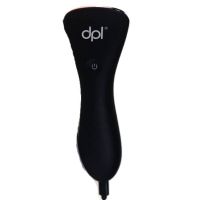 | Handheld Infrared and Red Light Therapy Device | DPL Clinical View Product |
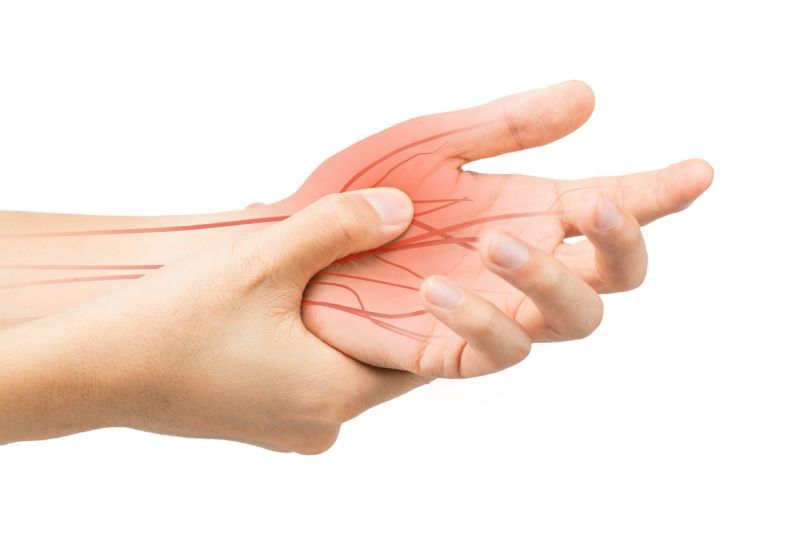
Finding a redlight therapy device that encompasses both optimal light wavelength and light intensity is essential to maximizing the therapeutic benefit. Using light as a healing treatment has been prevalent throughout history with recent research revealing the various effects that each light wavelength has on the human body. Of the various wavelengths that exist, near-infrared (NIR) and red lights have been found to be the most beneficial when it comes to healing properties. Our favorite red light therapy device for neuropathy is the dpl Nüve Red Light Therapy Device.
Light wavelengths are measured in terms of nanometers with red light wavelengths ranging from 600-700nm and near-infrared wavelengths ranging from 770-1200nm. Red light proves to be most effective in promoting increased cellular energy production, increased blood flow, and improved collagen and elastin production. Compared to red light, near-infrared light penetrates deeper into the skin accelerating bone healing, reducing pain and inflammation, promoting capillary formation, and reducing oxidative stress. In the treatment of neuropathy, near-infrared light offers longer wavelengths which tend to be more powerful for accessing deeper nerve damage. Ultimately, when considering the best device for you or your loved one, finding a product that offers both red and near-infrared light can maximize treatment efficacy.
Red light therapy has a plethora of potential benefits that can contribute to relief from neuropathy. As light penetrates the skin from the red light device, a process known as photobiomodulation takes place that contributes to a sequence of therapeutic processes. Pain relief is one such outcome that results from the release of nitric oxide from the blood vessel lining and red blood cells into the bloodstream. Nitric oxide acts as a vasodilator increasing oxygen delivery and immune cells to body tissues. With increased blood flow and associated healing properties, the body experiences reduced chronic inflammation and reduced pain.
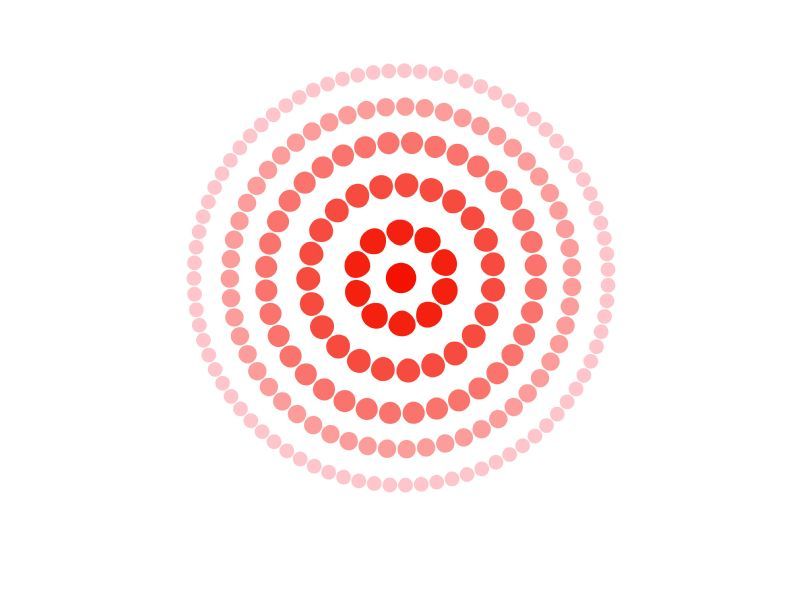
Neuropathy results from disease or damage to the nerves and associated nervous system. Where communication was once free-flowing, neuropathy results in absent, reduced, or abnormal communication of nerves leading to numbness, tingling, pain, and weakness. Luckily, research has shown that red light therapy may also contribute to nerve regeneration(along with pain relief and anti-inflammatory properties). By reducing local inflammation, red light therapy allows for the potential for nerve fibers to regenerate. This regeneration facilitates sensory and motor function in the associated nerve and reduces symptomatic neuropathy.
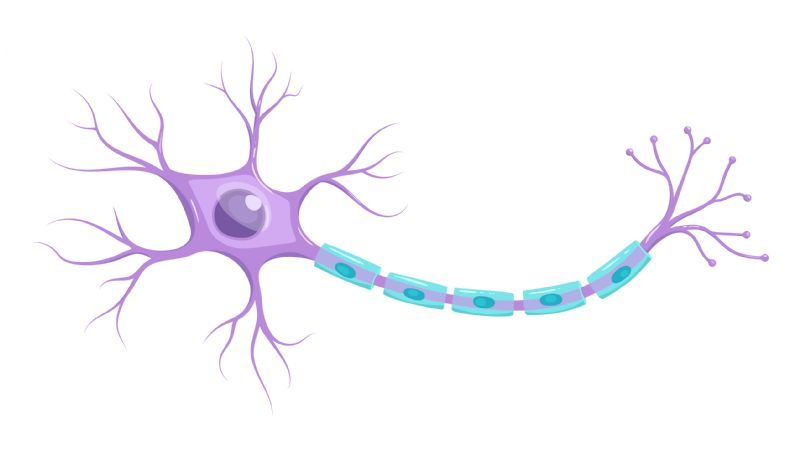
Chronic inflammation has become a primary cause of many medical conditions and disorders including neuropathy. Red light therapy works alongside diet, exercise, and medical management to combat inflammation and its associated symptoms. When red light or near-infrared light is applied, it causes a mild form of stress that triggers the cells to produce additional ATP or energy within the mitochondria. This additional energy leads to increased production of antioxidants and anti-inflammatory compounds within the cells.
Reducing inflammation not only reduces pain but promotes nerve regeneration and prevents additional nerve damage. By reducing oxidative stress, the treatment thereby reduces associated inflammation.

Similar to the mechanism discussed for pain relief, red light therapy contributes to improved blood flow by increasing the production of nitric oxide. An important finding of a 2017 study showed that the stimulation of nitric oxide production via red light therapy causes vasodilation or widening within the blood vessels, decreased blood pressure and increased localized blood flow. With improved blood flow, your circulatory system can better provide oxygen and nutrients to all parts of the body, effectively allowing for accelerated healing and reduced chronic inflammation.
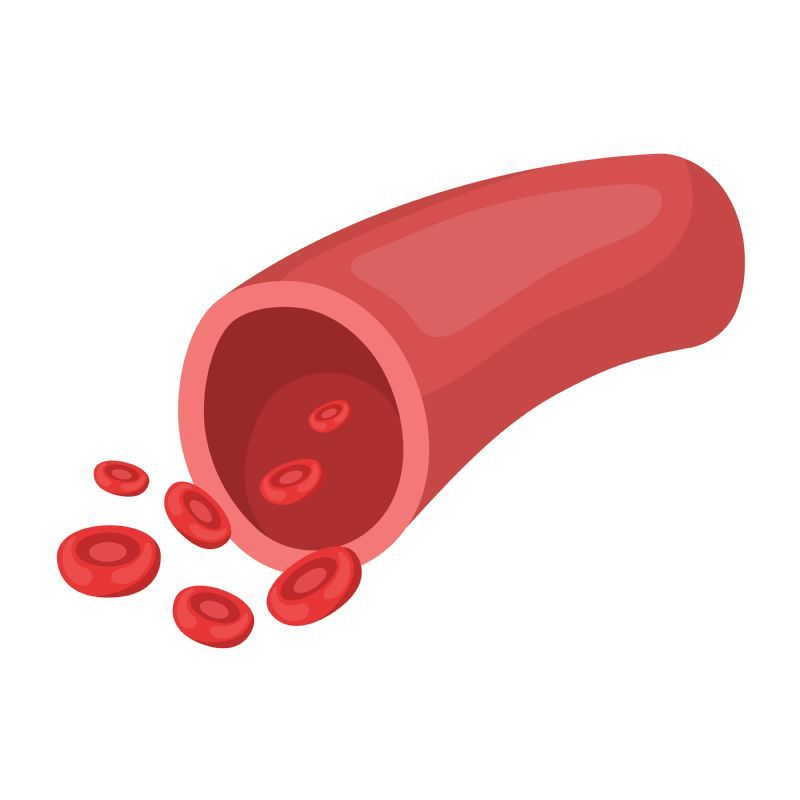
Restoration of nerve functioning involves repairing the gap between healthy nerve cells and damaged tissue. Red light therapy stimulates both Schwann cells, which are cells of the peripheral nervous system that insulate nerve cells, as well as fibroblasts, which contribute to the structural integrity of tissues in the body.
As it applies to neuropathy, fibroblasts communicate with the Schwann cells to create a union between healthy nerve cells and damaged nerve tissue. The activation of both of these cell types through red light therapy has been shown to facilitate healing mechanisms, decrease inflammation and promote normal restoration of neuron function.
.jpg)
Cellular metabolism broadly encompasses the sum of processes that involve using or creating energy within the cell. Mitochondrial dysfunction is a key component in many chronic disorders which leads to reduced energy production in the cells. Red light therapy works to boost cellular metabolism contributing to increased energy production, health optimization, and improved recovery. Although not fully understood, research has supported that improving a cell’s energy production leads to improved healing capabilities.

Success with red light therapy is highly dependent on consistency and compliance. Treatment should be performed a minimum of 3-5 days per week for 10-20 minutes per session. Given that nerves require an extended duration to heal and regenerate, consistent exposure to red light therapy should be completed for multiple months before expecting results. Ongoing treatment is a great way to promote continued nerve health and reap the multiple benefits of ongoing exposure.

Bottom line, red light therapy is a convenient and beneficial intervention that combined with medical management and lifestyle changes can reduce neuropathy. When purchasing a red light device, ensure your product is of high quality. Products using high-output LED bulbs will deliver sufficient amounts of light energy to effectively penetrate the skin and cause therapeutic benefits whereas cheaper or smaller handheld devices tend to produce inadequate amounts of light. In addition, ensure your product emits both red light and near-infrared light to reap the varying benefits each wavelength has to offer. Choosing medical-grade and FDA- registered devices will increase the likelihood of success when treating neuropathy.

A: At this time, there are no known side effects of red light therapy when used appropriately.
A: Red light therapy can promote reduced inflammation, reduced pain, and improved nerve regeneration associated with diabetic neuropathy, however it should be considered an adjunct to a comprehensive treatment plan which includes addressing the underlying cause of the disease.
A: Red light therapy is not considered a cure but rather a way to manage symptoms and improve quality of life. Studies have shown that it can promote nerve regeneration and stimulate the healing process however without medical management and lifestyle modification, symptoms are likely to return.
A: No prescription is needed for a red light therapy device.
A: Consistent use is the most important factor in maximizing potential outcomes. Using the device as an adjunct to a comprehensive treatment plan is important so managing your condition with your medical team is key. Ensure the device you are using is legitimate and is emitting the appropriate type and amount of light to reap the maximum treatment benefit.
Red light therapy is an innovative and research-backed intervention that can promote pain relief, increase cellular metabolism, facilitate nerve regeneration and reduce inflammation. Neuropathy does not have to take over your life. With appropriate use, a comprehensive treatment approach, and the proper device, you or your loved one can be on the way to recovery today.
Your next step is to read Expert Explains How To Choose A Red Light Therapy Device so you can make an informed buying decision! But if you need a little more info on red light therapy, check out Red Light Therapy At Home: Your ULTIMATE Guide.
Thanks for reading!
Didn't find what you were looking for? Browse all Light Therapy products or our entire catalog of Therapeutic Modalities products.
Interested in learning more? Check out our free, educational resource Caregiver University. You will find incredible articles about light therapy, hyperbaric oxygen therapy, cryotherapy, and much more!
Want to get social? Find dozens of videos featuring products and tips like these on Rehabmart’s YouTube channel! And follow the RehabMart.com Facebook!
>> Shop Red Light Therapy Beds <<
Jessi Cottrell is a Registered Nurse, copywriter, mother, and avid book reader. Her nurse background includes emergency medicine, psych & trauma, orthopedic surgery, addiction detox & rehabilitation, and school nursing. She has a passion for finding non-pharmacological methods to treat pain. This passion is fueled by her experience in addiction medicine as well as her own experiences with pain management after various surgeries.